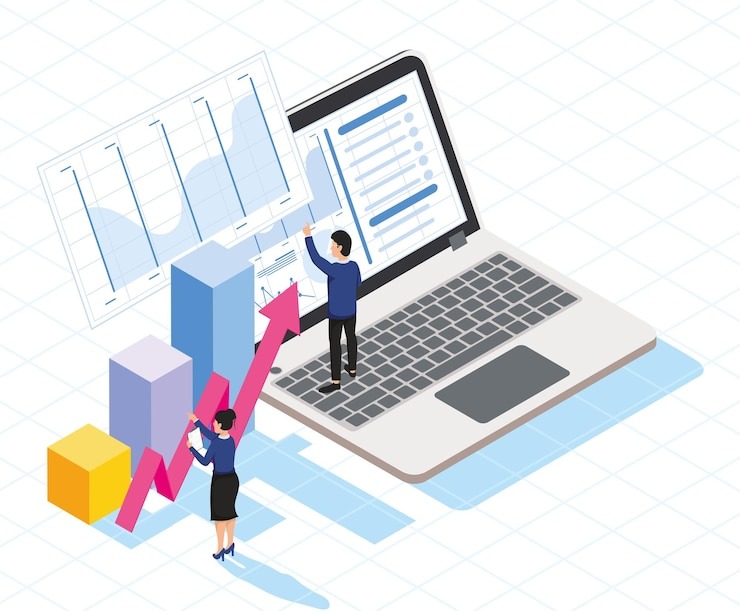The accounting profession has come a long way from manual bookkeeping to embracing advanced technologies that are transforming the landscape of financial management. With the rapid advancements in emerging technologies, the accounting sector is undergoing a revolutionary change that promises increased efficiency, accuracy, and cost-effectiveness. In this article, we will explore how automated bookkeeping is revolutionizing accounting in the present era, and how they are reshaping the roles of accountants and financial professionals.
Simplifying Data Management:
The simplification of data input and management procedures is one of technology’s major effects on accounting. In the past, accountants devoted a lot of effort to manually inputting data into financial software and spreadsheets. This laborious operation was time-consuming and prone to mistakes made by humans. Robotic process automation (RPA) and Bookkeeping Automation have simplified this procedure.
OCR makes it possible to automatically extract data from scanned documents and pictures, which accelerates and improves the accuracy of manual data input. RPA, on the other hand, imitates human movements to carry out monotonous activities, such as inputting data into several systems, therefore lowering the chance of error and saving crucial time.
Upgrade Accounting and Reconciliation Methods:
Procedures for bookkeeping and reconciliation have significantly improved with the help of modern technologies. Calculation software may now automatically update transactions, categorize costs, and reconcile accounts in real time by linking with bank feeds and other financial systems. This lowers the possibility of mistakes while also giving accountants access to the most recent financial data.
Computerized reconciliation procedures can quickly spot inconsistencies and abnormalities, giving accountants time to resolve problems before they get worse. As a result, companies are able to make better financial decisions, and accountants are free to concentrate on data analysis and strategic counsel.
Accelerate Reporting Process:
In the past, generating financial reports was a time-consuming task that required meticulous data compilation and analysis. With the advent of automation technologies, the process of financial reporting has been revolutionized. Modern accounting software can consolidate data from various sources and generate customized reports with just a few clicks.
Automated Bookkeeping Services also enable immediate updates, guaranteeing that firms always have access to the most recent financial data. In today’s fast-paced corporate world, when data-driven choices are crucial for remaining competitive, this expedited reporting procedure is critical.
Improve Compliance and Risk Management:
Businesses face a lot of difficulties complying with accounting rules and standards that are always changing. Adherence to these prerequisites becomes paramount, for diverging from them invites substantial repercussions and the looming specter of tarnished reputation. Technology-based automation is essential for assuring compliance and risk management.
The incorporation of compliance standards and regulations into accounting software allows for automated validation of transactions against them. This function aids in the early detection of any compliance concerns and enables accountants to swiftly address them. Automated risk assessment systems may also examine financial data for irregularities and unusual activity, assisting in the fraud prevention and detection process.
Increase Data Security and Privacy:
In the digital era, data security and privacy have emerged as crucial concerns. Automated Bookkeeping Solutions technologies are improving data security protocols while increasing accounting process efficiency. Strong encryption and multi-factor authentication are provided by cloud-based accounting systems, ensuring that financial data is kept private and is only available to authorized employees.
Additionally, automation lessens the need for manual management of private financial data, reducing the chance of data breaches brought on by human mistakes. Businesses may feel secure knowing that their financial data is protected through routine software upgrades and provider maintenance.
Integration of AI and Machine Learning:
Witness the metamorphosis of the accounting profession as artificial intelligence (AI) and machine learning (ML) seamlessly intertwine their threads of innovation within their very fabric. In the realm of cutting-edge innovation, AI-infused instruments possess the remarkable ability to sift through immense reservoirs of financial data, unearthing elusive patterns, trends, and pearls of insight that could easily evade the watchful eyes of human accountants. Immersing themselves in the rich tapestry of historical financial data, ML algorithms acquire the wisdom of the past, empowering them to weave precise prophecies and unveil tomorrow’s secrets.
In the realm of financial wisdom, these astute technologies present themselves as indispensable allies, rendering invaluable aid in the realms of tax planning, financial foresight, and budgetary prowess. As AI continues to evolve, it will augment the capabilities of accountants and enable them to focus on higher-value tasks, such as financial analysis and strategic decision-making.
Improve Client Services and Relationships:
Digital bookkeeping technologies have dramatically changed not just how accountants manage internal procedures, but also how they interact with and serve their clients. Many accounting processes are becoming automated, which frees up accountants’ time to interact with customers and offer tailored guidance. This improved quality of service promotes trust in the accountant’s knowledge and strengthens customer relationships.
Additionally, automation enables accountants to provide their customers with real-time financial analytics, empowering them to take rapid, educated choices. Accountants can proactively spot areas for expansion, ways to save costs, and possible hazards, which strengthens their position as strategic advisers to organizations.
Cost Savings:
Embracing automation technology in accounting can yield substantial cost savings for businesses. Routine jobs like data entry, bookkeeping, and reconciliation demand fewer resources when automation replaces heavy physical labor. As a consequence, firms may optimize their workforce by diverting their human resources to tasks that bring greater value.
Automation also reduces mistakes, which, if disregarded, might cause significant financial losses. Automated methods considerably lower the expenses related to mistake correction and dealing with compliance concerns. Additionally, cloud-based accounting automation solutions are affordable for organizations of all sizes since they do not require significant upfront expenditures in hardware and software.
Scalability and Flexibility:
Scalability is a crucial factor in modern enterprises since they frequently deal with varying workloads and seasonal needs. Technologies that automate processes allow for efficient adjustment to changing workloads. With automated processes, organizations may simply scale up or down in accordance with their needs without having to make extra resource investments or deal with operational bottlenecks.
Computerization also makes it easier to collaborate with other parties like tax authorities and auditors. Automated reporting and data exchange allows for seamless communication with these organizations, increasing openness and accelerating the auditing process.
Final Words
The accounting industry is now undergoing a change, led by automation technology. Accounting automation had a significant influence on how accounting operations are carried out, from speeding up data input and optimizing bookkeeping to strengthening compliance, expediting financial reporting, and integrating AI and ML. Increased productivity, accuracy, cost savings, better client services, and better resource management are all benefits of automation.
Future and current accountants must embrace automation and take advantage of its possibilities. Instead of worrying about losing their jobs, accountants may use automation technology to advance their positions as strategic advisers, data analysts, and moral keepers of financial data.



